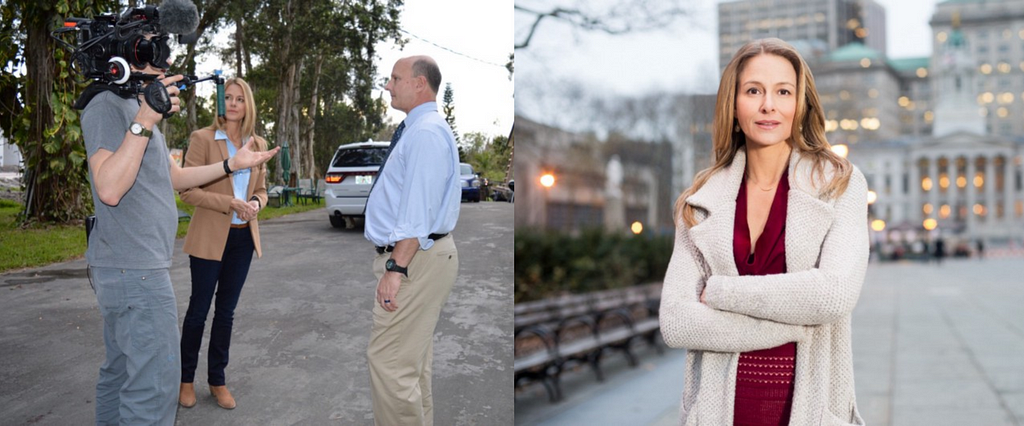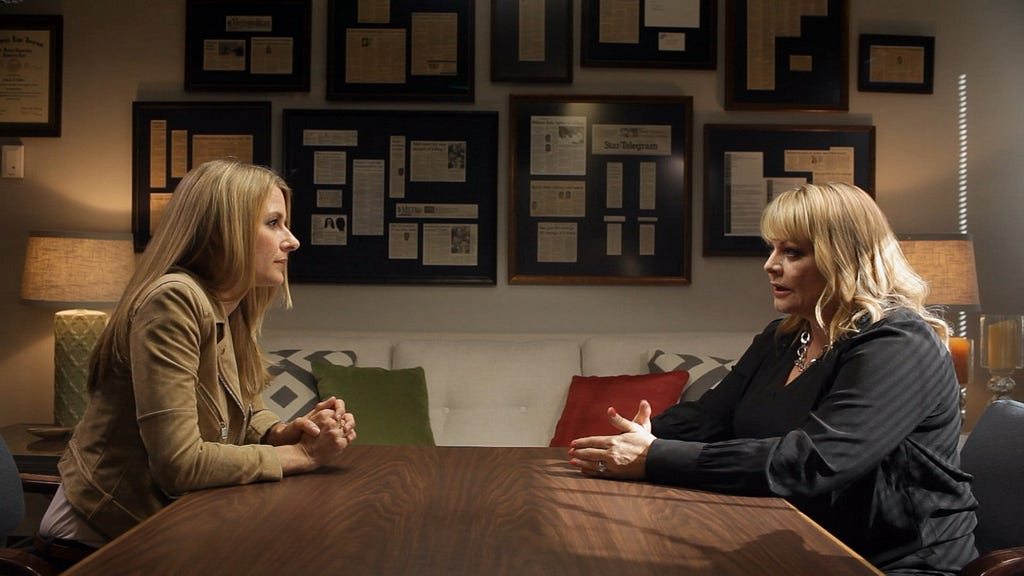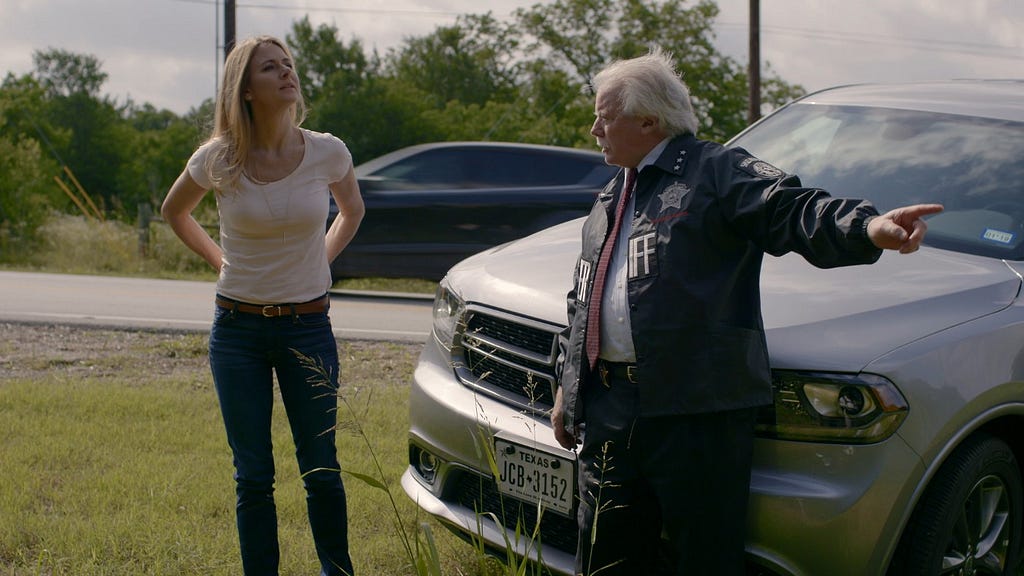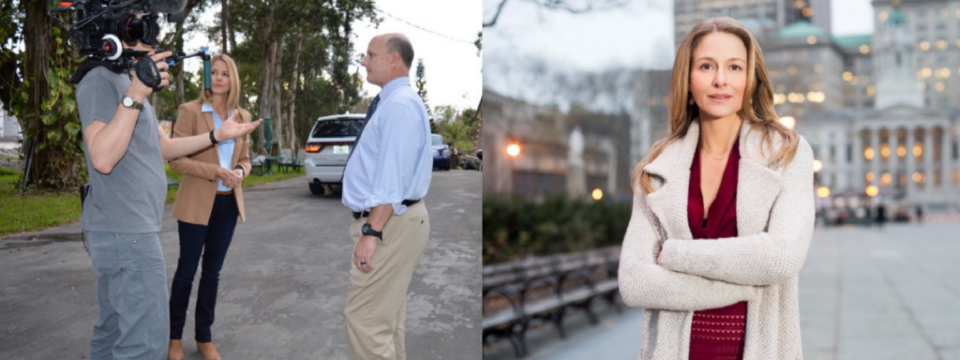
The preparation process for a trial won’t get easier with time. I still take detailed notes and write out all of my statements beforehand and that hasn’t changed in 21 years. I too wistfully waited for the day when I could get up in court and just speak. I tried it once during an opening statement. When I sat down I knew it was far from my best and it reminded me that each case deserves my all, and that what works for me is always going to take a lot of prep. Each case, each victim deserves that.
We had the pleasure of interviewing Anna-Sigga Nicolazzi, who spent two decades as a prosecutor in the Brooklyn District Attorney’s Office, one of the largest and busiest offices in the country. Early on, Nicolazzi quickly climbed the ranks to reach the elite Homicide Bureau, eventually becoming Chief of Trials. Nicolazzi has tried over 50 felony cases to verdict and never lost a murder case. The support Nicolazzi provides to victims’ families has become her hallmark. Now, she’s bringing her compassion and expertise to primetime television as the host of Investigation Discovery’s new series TRUE CONVICTION, airing Tuesdays at 10/9c. Episodes are also available to watch on InvestigationDiscovery.com or by downloading the ID GO app on Android and iOS.
So what inspired you to be a homicide prosecutor?
As soon as I started law school, I knew I wanted to be a prosecutor. Within that, trial work was what I wanted to do. From the start, I found it exciting and challenging. Homicide trials represented the pinnacle of that. I also have a cousin who was murdered when I was a child. While that wasn’t my motivation for becoming a homicide prosecutor, I saw firsthand how it forever devastated her parents. That always stayed with me and was a personal element that made my career particularly rewarding. I had seen the other side of it firsthand, how murder affects the victim’s families.
Can you share a story from one of the more memorable cases you’ve worked on?
The Romona Moore case. Many of my cases are memorable, unfortunately, because they are so tragic. But thinking back on memorable moments from inside the courtroom, one of the events I’ll never forget was the homicide trial surrounding the 2003 murder of Romona Moore. Two defendants were being tried for her death at the same time. We had just finished hearing heart-wrenching testimony from Romona’s mother, when all of a sudden there was a commotion with the defendants. One of them stabbed his defense lawyer in the throat with a homemade weapon he’d smuggled into the courtroom (a “shiv”), and then he ran into the spectators. At the same time, the other jumped over the table to grab a court officer’s gun. They were trying to escape. It happened in the blink of an eye, and right away Romona’s cousin ran in front of me to block any attack. It was unforgettable. From that day on, whenever I have entered a courtroom, I have always been much more aware of my surroundings, checking to see where the court officers are located.
Tell me about TRUE CONVICTION and how you got involved with the project?
The idea for True Conviction started years ago. I was doing media interviews about my own cases and realized I wanted to be on the other side of the table asking the questions, and that’s exactly what I’m doing in the show. The first season centers around six homicide cases. We traveled to small towns and large cities across America to highlight the incredible work my colleagues tirelessly carry out in seeking justice for victims’ families, who we also met with in addition to detectives. My goal is to bring these true crime stories to life and tell them in a way that hasn’t been done before — through the prosecutor’s lens.
Do you have a favorite story from your time meeting with the families featured in TRUE CONVICTION?

All of the families we met with in the course of filming these first six episodes were so welcoming. We would often do our interviews at their homes, and by the end of each one we really felt like we’d bonded with them. The last episode we filmed was the case of Donna Willard’s murder in Philadelphia. At the end of our interview with Donna’s sister, she showed me a photo album in which there were letters she had written to Donna, including a poem that she read aloud to us. It was beautiful and a stark reminder of the incredible loss.
It was hard not to get emotional during our meetings with these families. We were in Florida meeting with Hope Wells’ husband. Hope and her mother Margarita Ruiz had been murdered together in their home. Hope’s husband, a really kind, warm person, was telling us about her and what it was like to find out she’d been killed. From where I was sitting, I could see various crew members, and one of the producers had tears rolling down her face as Hope’s husband spoke. Their shared memories and stories affected us all.
What advice would you give to someone considering a career in law?
Follow your passion and not the money, if you can. I followed a profession that didn’t have dollar signs behind it but I woke up every single day excited about my job and feeling good about what I did — and that’s really important when your work requires long hours like mine did.
What is one of your proudest achievements?

The most rewarding thing has been any time I’ve been able to provide relief to a victim’s family. Nothing is ever going to bring their loved one back, but when they get some sense of closure or justice, newfound hope that everything will be okay, or they tell me they slept well afterward — that means more to me than any recognition or award.
What are five things you wish someone had told you when you were first starting out?
- The preparation process for a trial won’t get easier with time. I still take detailed notes and write out all of my statements beforehand and that hasn’t changed in 21 years. I too wistfully waited for the day when I could get up in court and just speak. I tried it once during an opening statement. When I sat down I knew it was far from my best and it reminded me that each case deserves my all, and that what works for me is always going to take a lot of prep. Each case, each victim deserves that.
- This job will truly affect your heart. It’s inspiring but it hurts. Every case I was reminded of that, usually during the trial. While each one takes lots of evidence prep and investigation, when you speak with those families, it’s a painful reminder what this is all about — people and incredible loss. Their pain was the motivation to stay up those extra hours and look over those documents one last time. I think the day you lose that personal perspective is the day you need to stop the work.
- You can’t ever forget that this job is case by case. Part of justice is having leniency when the case calls for it. There was one home invasion homicide where the “lookout” was a young woman who was the girlfriend of the main attacker. Through investigation we learned that her family had actually prostituted her to this older man from the time she was a young teenager. She agreed to cooperate (testify against the other participants) and for that, we gave her another chance. When we let her out of jail, she got her life back together — which included school, a job and caring again for her young son. Justice means many things and is not always the expected straight line.
- It’s okay for a jury to compromise. I learned that in the case where a young man got a gun and set out to purposely kill someone who had bullied him. Technically, he was guilty of murder. The jury agreed but came back with a lesser conviction charge. At first, I was upset, but their compromise taught me how perceptive jurors can be and their compassion was also a piece of true justice.
- Being a homicide prosecutor is truly a 24/7 career. You will pull all-nighters during trials but even beyond that, your brain will never really shut off. Even on the nights when you get to bed at a decent hour, the police could call at any moment with a new case or new information. Then you’re emailing the office to make sure you notify all who need to know. When you finally lay back down, often there is no sleep. Thoughts of the newest tragedy and the legal ramifications of whatever decision is currently being figured out keep swirling in your mind.
If you could share a meal with any public figure, who would it be?
There are so many people I’d love to meet, and all for different reasons, but for my career interests it would have to be Sandra Day O’Connor, the first woman to become a Supreme Court Justice. I was fortunate enough to see her speak once and was in awe of her. I’d love to ask her what it was like for a female lawyer when she was getting started. Forty law firms refused to even interview her because she was a woman, and then she wound up outranking them all by sitting on the Supreme Court. That’s its own form of justice!
This was very inspiring. Thank you so much for joining us!
Homicide Prosecutor Anna-Sigga Nicolazzi: Five Things I Wish Someone Told Me When I First Started was originally published in Authority Magazine on Medium, where people are continuing the conversation by highlighting and responding to this story.
